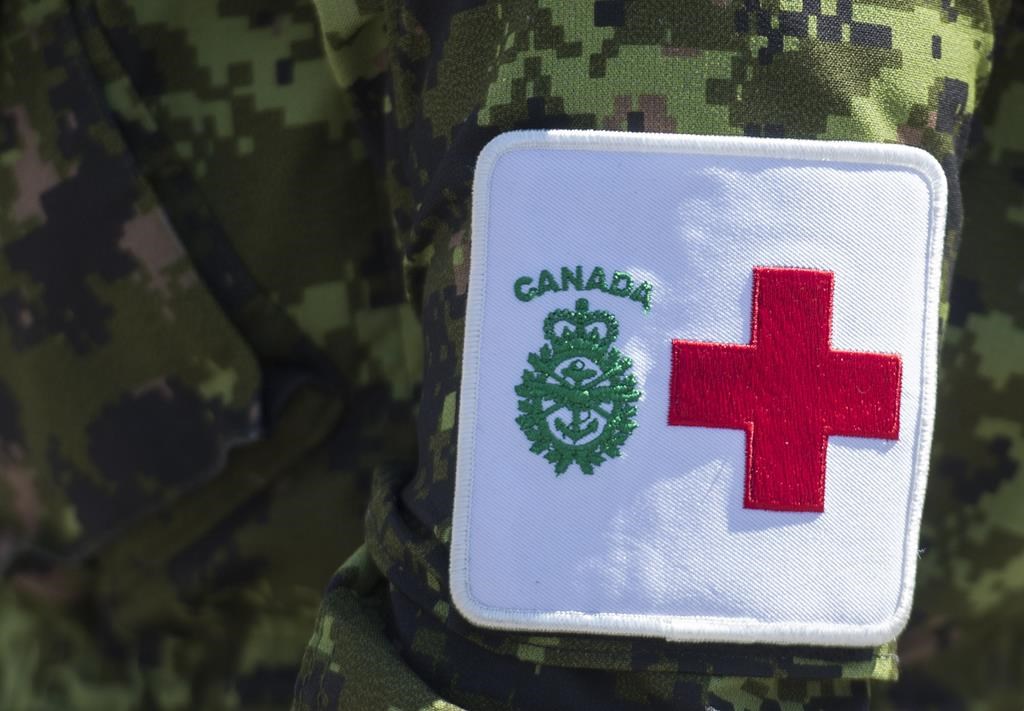A report from the Canadian military released on Tuesday described horrific conditions at five Ontario long-term care homes, leaving many across the country wondering if their own local facilities are plagued by the same problems.

The military sent personnel to help at care homes in Ontario hardest hit by the effects of COVID-19, and the report raised concerns about unsanitary conditions, a disregard for infection control and “borderline abusive” treatment of residents.
Jan Legeros, director of Manitoba’s Long Term and Continuing Care Association, told 680 CJOB that Manitoba takes inspections and reviews of care homes seriously.
“Here, we do have provincial standards reviews that are conducted every two years,” said Legeros.
“We also have unannounced reviews that are conducted in between times. The provincial standards are in legislation — you must meet those standards or your licence is affected.”
All care homes must also meet legislated hours of care for residents. Despite more stringent regulations and reviews than some other provinces, however, Legeros said Manitoba still faces challenges — namely aging facilities, an issue that also arose in the Ontario report.
“Over 40 per cent of our personal care homes are older — more than 40 or 50 years old,” Legeros said.
“Many of them still have shared washroom facilities, which we’ve heard described in the tragic events in Ontario and Quebec.”
A former personal care home worker in Manitoba, who spoke to Global News anonymously out of concerns over future employment, said that during the COVID-19 pandemic, she quit her job because of what she was seeing her colleagues get away with without consequence.
“I noticed things that were not quite right and I brought them to the attention of management and ownership. That’s when things went downhill for me,” she said.

Get weekly health news
The former worker said that during the COVID-19 pandemic, families were unable to visit loved ones, which meant there were fewer watchful eyes ensuring staff behaved properly.
Plans were recently announced by the province to relax restrictions around care home visits by allowing limited outdoor visitation, but those have not come into effect yet.
The woman told Global News she knew some staff were watching TV in residents’ homes instead of caring for them, reusing diaper briefs, not cleaning up after clients and getting mad at them when they soiled themselves.

“I knew that it was a verbal lashing that (the care home resident) had gotten for something that’s out of her control. You can’t get mad at a client when they have an accident. It’s not their fault, it’s out of their control. You’re there to clean it up and take care of them,” she said.
One of the other issues was with residents who have conditions like dementia and Alzheimer’s.
“It’s hard for them to advocate for themselves because no one really listens. If they say they hate somebody or if they make a co-worker cry, you don’t have both sides of the story,” she said.
“Right now, it’s a little bit more difficult for the loved ones because they have to rely on the residents and the co-workers to say something on those who aren’t doing their job. Other people are afraid to say things because if they say something that puts their job on the line because they’re speaking ill of the company they work for.”
The Canadian Armed Forces said in a statement Tuesday that military members deployed to care homes had an obligation to report “any observation that could be detrimental” to residents, employees and the mission.
“The intent of reporting these observations is to provide constructive situational awareness to the chain of command and report on any possible issue that might hinder mission success or, more importantly, bring harm to those we serve,” the statement said.
Political condemnation of the details of the military report came quickly, with Ontario premier Doug Ford calling it “appalling” and “disgusting”.
“It is so disturbing that when I read this it was hard to get through. It is the most heart-wrenching report that I have ever read in my entire life,” said Ford.
Prime Minister Justin Trudeau also described the report as troubling and said Tuesday he had discussed the issue with Ford, who has called for an investigation.
One death described in the report has been forwarded to the coroner for further investigation.
Manitoba Premier Brian Pallister said the Ontario report means the province will take a hard look into local care homes.
“Certainly we will examine in detail the report form Ontario and see what we can glean from it and learn from it,” Pallister said Wednesday.
“There are other measures that are in the planning stages right now that we believe can help to improve the quality of life and the security for seniors not only in our personal care homes, but for seniors generally who wish to remain in their own homes.”
A provincial government spokesperson told Global News there were an average of 91 inspections a year done at Manitoba long-term care homes between 2017-2019.














Comments